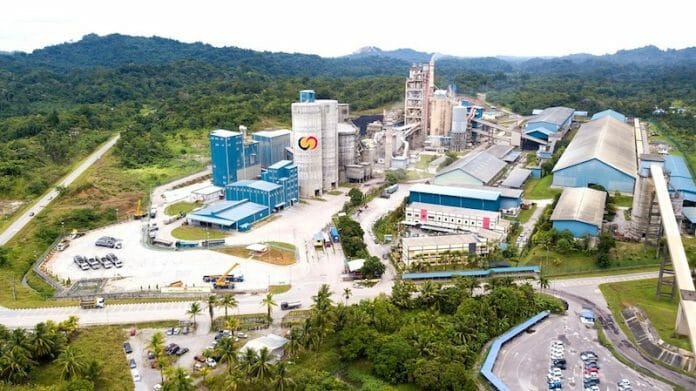Cahya Mata Sarawak Berhad will be firing up its first furnace at its Malaysian Phosphate Additives Sarawak (MPAS) complex in Bintulu on Aug 8, much-awaited progress that has been delayed for two years due to Covid-induced bottlenecks from lockdowns to supply chain disruptions and unavailability of foreign workers. The remaining three furnaces will be fully commissioned by Dec-22.
CMBS holds 60% of MPAS via its wholly owned subsidiary Samalaju Industries Sdn Bhd. It is the first integrated phosphate complex in the country. The first phase will consist of three plants with an annual capacity of 48,000 metric tonnes (MT) of yellow phosphorus, 75,000 MT of technical phosphoric acid, and 60,000 MT of food-grade phosphoric acid. The total investment for the first phase is about RM898m, funded via shareholder’s equity and long-term loans. The entire complex when completed will have an annual production capacity of 500,000 MT of food, feed, and fertiliser phosphate additives, 100,000 MT of ammonia, and 900,000 MT of coke.
In a brief update call yesterday with MIDF, the management guided that based on conservative pricing, it is estimated that the plant will be cash flow neutral by FY23 and be in the black by FY24. CMS management is optimistic about the demand it is seeing so far and the interest garnered for the second phase and potential downstream activities. MIDF is maintaining its FY23F-FY24F earnings forecast for now after revising its estimates downwards by 15% recently in view of CMSB’s impending disposal of its entire stake of 25% each in OM Materials (Sarawak) Sdn Bhd and in OM Materials (Samalaju) Sdn Bhd, marking its exit from the smelting business.
Separately, as per the group’s announcement on 21 July 2022 last week, it has filed lawsuits against a former executive director and five others for breaches of fiduciary duties to CMSB, related to the MPAS development. Based on independent advice from its legal counsel, the board approved the filing of the suits, based on the findings by KMPG in a special review that found gaps in the contract management and bidding processes and a lack of monitoring of hedging transactions, leading to losses for the project due to adverse currency exchange movements; lack of due diligence and stakeholder management on JV partner’s risks of a project and for not adhering to reporting structures by management to the board.
The impact has already been accounted for in the financial statements of affected years, which management guided to be about RM251m, including impairment.
In terms of environmental concerns, there will be zero gas emissions from the MPAS project according to CMSB, on top of having 99.9% of its water recycled and no water discharge. MIDF was reassured of management’s direction moving forward as it places a heightened emphasis on driving CMSB to be on track with the best practices of ESG. It is currently pushing for its ESG rating to be certified by an independent third party.
Attributed to MIDF Research









